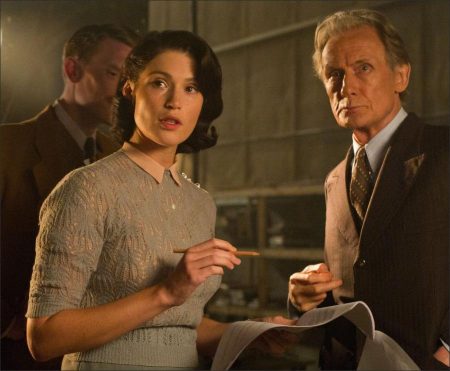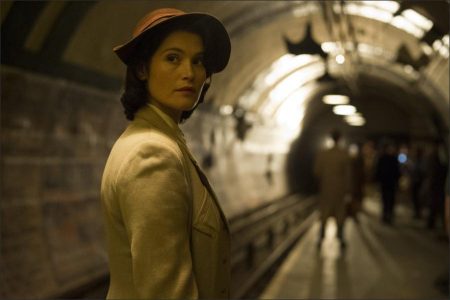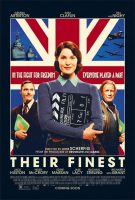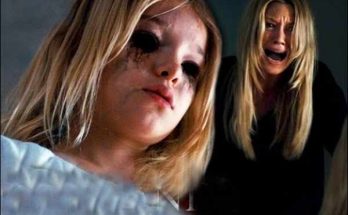Set during World War II in the early 1940s, about some filmmakers trying to make a patriotic film about the Miracle of Dunkirk to boost morale of the British during The Blitz.
Their Finest is a British romantic comedy film directed by Lone Scherfig and written by Gaby Chiappe, based on the 2009 novel Their Finest Hour and a Half by Lissa Evans. The film stars Gemma Arterton, Sam Claflin, Bill Nighy, Jack Huston, Jake Lacy, Richard E. Grant, Henry Goodman, Helen McCrory, and Claudia Jessie.
Principal photography began early-September 2015 in London. It was screened at the 2016 Toronto International Film Festival[2] and will be released in the United Kingdom on 21 April 2017.
Principal photography began early-September 2015 in London. It was screened at the 2016 Toronto International Film Festival and will be released in the United Kingdom on 20 April 2017.
Film Review for Their Finest
Their Finest Movie Storyline. Near the end of the stealth charmer Their Finest, the accidental screenwriter played by Gemma Arterton slips into a movie theater amongst the London public during the Blitz to watch the morale-building British Ministry of Information propaganda film she has helped to shape. Director Lone Scherfig pushes every required button to evoke the style of the era in this mini-narrative recounting a Dunkirk rescue mission by patriotic civilians — the quivering lips, the plucky determination, the humble heroism and the lush swell of sorrow and stirring sentiment. But don’t be surprised if you find yourself getting misty-eyed during this lovely sequence as you surrender to every hoary cliché.
As proto-feminist protagonists go, Catrin Cole (Arterton) may be a little meek for modern tastes. But her quiet assertiveness seems truer to the period than it would have had she been given a contemporary spin and a lot of boldly declarative speeches. It also allows Arteron to explore the inner strength and resolve of this warm-hearted woman via subtle strokes that yield affecting rewards.
The performance acquires heft also from its position at the center of a sterling ensemble of British talent, from rising stars like Sam Claflin to veterans like Bill Nighy, Helen McCrory, Richard E. Grant and Jeremy Irons, the latter in a very funny self-satirizing cameo. Their Finest doesn’t match the delicacy of Danish director Scherfig’s best English-language feature, An Education. But just as that 2009 film captured Britain during the transitional time of the 1960s through the experiences of a young woman in emotional and intellectual bloom, Scherfig’s latest does something similar with the 1940s, albeit through a far softer lens of sweet nostalgia.
Adapted by Gaby Chiappe from a 2009 novel by Lissa Evans, the story is written with a light touch but also a keen sense of the mood of domestic Britain in those darkest hours of 1940, when London was riddled with bombsites. That reality is reflected in the gloomy paintings of Ellis (Jack Huston), whose work is deemed too brutal and depressing for use by the War Office. Needing income, his Welsh transplant wife Catrin applies to the Ministry of Information for what she thinks is a secretarial position. But the head of the Film Division (Richard E. Grant) says her copywriting skills make her ideal to bring the women’s perspective to pictures whose mandate is “authenticity with optimism.”
Scherfig uses amusing recreations of such films early on to show how low the bar had been set, with clips of fretful housewives pegging out washing while turning to a cup of tea to calm their fears for husbands and sons off at war. Assigned to work (at a lower pay rate) with male co-writers Tom Buckley (Claflin) and Raymond Parfitt (Paul Ritter), Catrin learns that women’s dialogue in those wartime reels is referred to as “the slop.”
Their chance to have an impact on flagging national morale comes with a project based on the true story of mousy twin sisters Rose and Lily Starling (Lily and Francesca Knight), who piloted their drunken father’s boat from Southend to Dunkirk to rescue wounded British soldiers. Sent to research the story, Catrin is crushed to find that newspaper accounts were greatly embellished. But her growing understanding of how the film industry works prompts her to write the story the public needs to see.
While Ellis wants to send her home to Wales, and cynical Tom is dismissive of her contributions, Catrin becomes determined to see the project through. A Ministry employee tasked with making sure the writers stick to the approved template (Rachael Stirling) confides to Catrin her view that men are scared of women refusing to slip back into their domesticated roles once they get a taste of life in the wartime workplace.
That feminist angle remains quite subdued. The real interest is in watching as the film comes together — in the screenwriters’ office, on location in Devon and later in the studio — as Catrin maneuvers to stop Rose and Lily from being sidelined by male heroics. She proves a canny negotiator also with haughty thespian Ambrose Hilliard (Nighy), the popular star of a pre-war detective series now reduced to playing a supporting role he feels is beneath him. The sheer indignation on Nighy’s face as he reads the description of his character in the movie (“a shipwreck of a man; 60s, looks older”) is priceless.
Nighy’s wryly self-mocking performance puts the exploration of Ambrose’s vanity, his shaky pride and his awareness that his romantic-lead days are behind him among the movie’s most enjoyable elements. He takes career advice with weary forbearance from his Polish agent and longtime friend Sammy Smith (Eddie Marsan). But when Sammy is killed during an air raid and his sister Sophie (McCrory) takes over managing his clients, her crisp authority and wily guidance introduce a lively spark into their scenes, with Ambrose’s flirtatious manner adding some minor-key sexual frisson.
One of the film’s funniest stretches springs from government instructions — issued by Irons’ Secretary of War with the hilarious pomposity of a theatrical ham languishing in a bureaucrat’s job — that a brave American must be incorporated into the story to encourage the U.S. to get on board as allies. The wholesome blond Air Force hero hired to fill that spot, Carl Lundbeck (Jake Lacy), is a lump of wood on-camera, but Catrin persuades Ambrose to add acting coach to his responsibilities.
Chiappe’s screenplay lets the narrative wander at times, losing some of the secondary characters in the shuffle, such as Hungarian filmmaker Gabriel Baker (Henry Goodman), on a mission to prove his work can make a difference. But the principal thread is both absorbing and emotionally satisfying, as Catrin earns the respect of her colleagues while also acquiring deeper knowledge of herself and a broader sense of her career options. The romantic notes of her developing rapport with Tom remain muted for much of the running time, until a discovery about Ellis and a subsequent tragedy cause the floodgates of Catrin’s feelings to open.
Arterton brings grace and understatement to Catrin’s gradual belief in herself and in the magic of movies, while Claflin reveals maturity and dry humor that will be a surprise for audiences who know him primarily from his Hunger Games role or the weepy Me Before You.
While the strong ensemble cast is Their Finest’s most valuable asset, the movie also looks quite handsome on what appears to be a modest budget, and includes some delightful glimpses of how screen effects were achieved way back in those handcrafted days. A reveal of the visual trick behind a Dunkirk scene lands a huge laugh. Rachel Portman’s score isn’t shy about pushing the sentiment, but that’s in keeping with a film that celebrates old-fashioned screen storytelling with infectious fondness.
Their Finest (2017)
Directed by: Lone Scherfig
Starring: Gemma Arterton, Sam Claflin, Bill Nighy, Jack Huston, Jake Lacy, Richard E. Grant, Henry Goodman, Helen McCrory, Claudia Jessie, Stephanie Hyam
Screenplay by: Gaby Chiappe
Production Design by: Alice Normington
Cinematography by: Sebastian Blenkov
Film Editing by: Lucia Zucchetti
Set Decoration by: Liz Griffiths
Music by: Rachel Portman
MPAA Rating: R for some language and a scene of sexuality.
Studio: Lionsgate Films
Release Date: January 13, 2017
Views: 58





